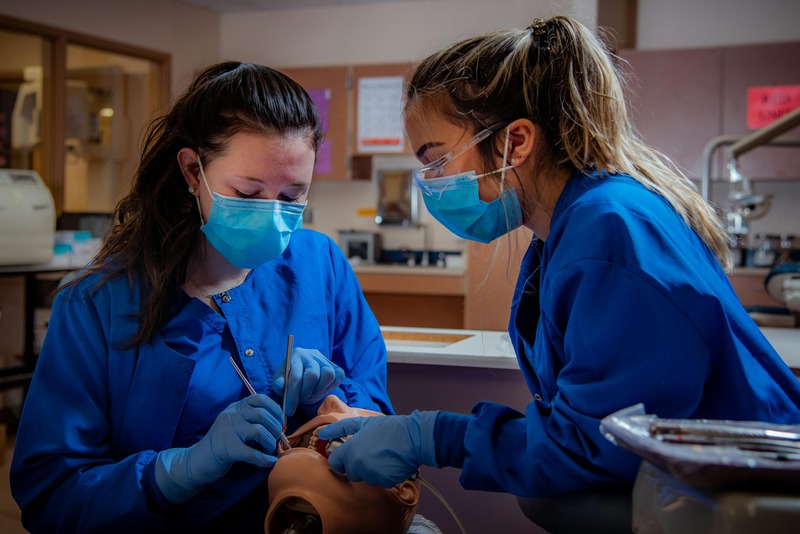
When it comes to maintaining a dazzling smile and ensuring oral health, the expertise of a periodontist is indispensable. But what exactly does a periodontist do, and why might one need to see this dental specialist? Grasping the role of a periodontist in dental health management can help patients make informed decisions about their oral care needs.
Definition and Education
A periodontist is a dentist who specializes in the prevention, diagnosis, and treatment of periodontal disease, as well as in the placement of dental implants. To become a periodontist, one must first graduate from an accredited dental school and then complete at least three additional years of specialized training in periodontics. During this time, they receive extensive education in both the theory and practical application of periodontal procedures and dental implantation.
Key Responsibilities of a Periodontist
Periodontists have a wide range of responsibilities that together contribute to their crucial role in dental health management. They are involved in:
-
Diagnosing periodontal disease through patient examination and the evaluation of dental x-rays and charts.
-
Designing comprehensive treatment plans tailored to the specific needs of each patient.
-
Performing surgical procedures for implant placement, gum grafts, and regeneration of lost bone and tissue.
Periodontal Disease Management
At the heart of a periodontist’s work is the management of periodontal disease, an advanced form of gum disease that can lead to tooth loss and other health complications if left untreated. A periodontist addresses this through non-surgical treatments like scaling and root planing, which cleanse the infected root surfaces, or through surgical interventions to restore supporting tissues.
Dental Implant Placement
An integral part of a periodontist’s skill set is the placement of dental implants in Fort Worth, TX. These artificial tooth roots are placed into the jawbone to hold a replacement tooth or bridge. Due to their expertise in osseointegration and oral anatomy, periodontists are the go-to professionals for implant surgery, ensuring optimal patient outcomes.
Specialized Procedures
Periodontists are known for performing specialized procedures that general dentists may not do. These include but are not limited to:
-
Expertly performing complex extractions.
-
Offering sedation dentistry for patient comfort during procedures.
-
Utilizing advanced technologies such as lasers and digital imaging.
Collaboration with Other Dental Professionals
In many cases, periodontists work in close collaboration with other dental professionals, including general dentists and prosthodontists, to ensure comprehensive care. They might lead a team in multi-faceted dental procedures or provide specialized knowledge during complex cases, such as those involving all-on-4 dental replacement procedures. Coordinating with other dental health providers is critical to creating the best treatment outcome for patients.
Patient Education
Education forms a cornerstone of a periodontist’s role. They inform patients about the relationship between oral health and overall health and how to prevent periodontal disease through proper oral hygiene practices. Patient training on how to maintain ‘dental work, like implants or bridges, is a critical aspect of the periodontist’s educational duties.
Regular Visits
Maintaining dental health often requires ongoing management, especially for patients with a history of periodontal issues. Regular visits to a periodontist ensure that any new signs of disease are caught early and treated promptly. Should one need to find their location on Google Maps, it can simplify the process of scheduling regular check-ups and cleanings.
Benefits of Routine Periodontal Check-ups
Regular check-ups provide several benefits:
-
Early detection of gingivitis, which can be reversed with prompt treatment.
-
Monitoring the status of existing dental works, like implants and gum grafts.
-
Professional cleaning to maintain oral hygiene and prevent future problems.
Advanced Technology in Periodontics
Innovation in dental technology directly impacts the field of periodontics, allowing specialists to perform procedures with greater precision and efficiency. From 3D imaging for better assessment of bone structure to laser treatments that reduce healing time, periodontists use cutting-edge technology to enhance outcomes for their patients.
Addressing Complex Dental Issues
When dental issues escalate beyond the realm of routine care, a periodontist is a specialist equipped to address them. With advanced training in periodontology, periodontists handle complex dental problems that general dentists may not be prepared to manage.
-
Gum Grafting Procedures – Periodontists perform gum grafts to counteract severe gum recession, protecting the roots of teeth and improving the gumline’s appearance.
-
Complex Implant Restorations – They have specialized knowledge in placing and restoring dental implants, ensuring functional and aesthetic success.
For conditions such as severe gum recession that may necessitate grafting procedures or intricate cases that require implant-based restorations, periodontists possess the expertise and precision skills needed to provide effective treatment.
To End
The role of a periodontist in dental health management is multi-faceted, encompassing diagnosis, treatment, education, and collaboration with other experts. These specialists provide a level of care essential to maintaining a healthy mouth, preventing disease, and restoring function and aesthetics with dental implants and other procedures. Regular visits to a periodontist can be an integral part of one’s oral health routine, ensuring long-term dental wellness and a confident, radiant smile.























































